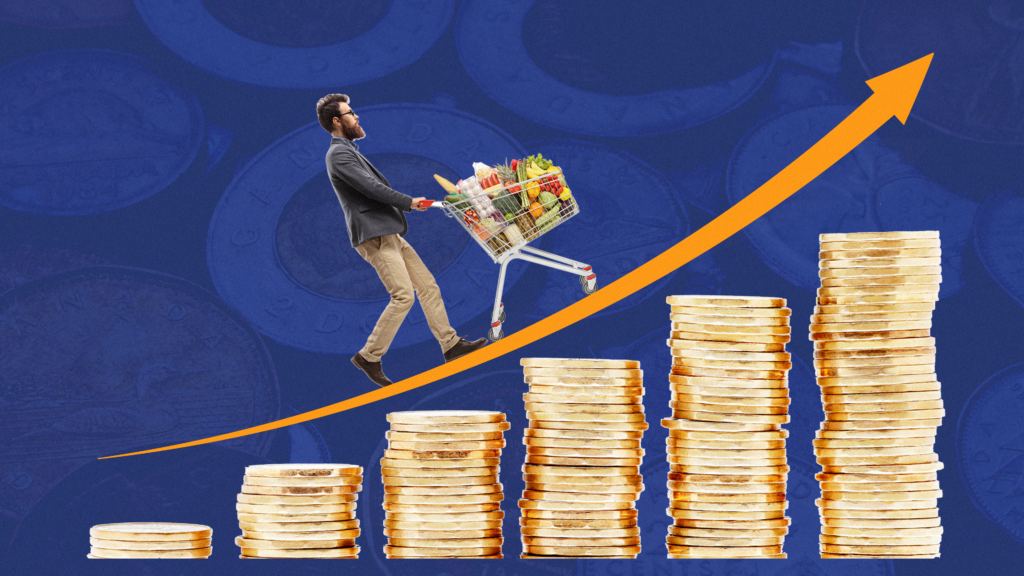
To address the ongoing affordability crisis, Parliamentarians should support Bill C-56 and back unions to counterbalance corporate power
By Dr. DT Cochrane, Senior Economist at the Canadian Labour Congress as published in The Hill Times
Bill C-56, better known as the “Affordable Housing and Groceries Act”, gets its third reading this week. It includes an important change for challenging the corporate power that has worsened the affordability crisis: repeal of the “efficiency exception” from the Competition Act.
Currently, the efficiency exception allows a merger and/or acquisition (M&A) to proceed even after the Competition Bureau determines it is likely to “substantially” reduce competition, if it is expected to produce “gains in efficiency” that would offset the harms.
One problem with the exception is that it does not consider or address who will receive the supposed gains or who bears the harms. However, the distributional outcomes are all too predictable.
Consider Loblaw’s 2014 acquisition of Shoppers Drug Mart. Analysis of Loblaw’s financial statements reveals that the company’s markup—the amount it adds on top of operating costs—increased from 6.9% for the three years before the acquisition was completed, to 8.7% in 2019. Although it may seem small, those few percentage points matter a lot.
In its report on the grocery retail sector, the Competition Bureau noted that an increase in grocery chain markups prior to the pandemic has allowed the companies to collect much higher profits.
If Loblaw had applied its pre-acquisition markup during the pandemic (2020 to 2022), Canadian consumers would have saved over $4 billion. During those years, the company distributed more than $5 billion to its shareholders through dividends and share buybacks. Loblaw’s increased market power allowed it to take more money from Canadians for the benefit of its owners, the largest of whom is the billionaire Weston family.
Of course, Loblaw is not the only corporation that has reaped substantially higher profits since the pandemic struck.
Sectors across the economy have claimed billions more profit in 2021 and 2022 than they did in 2018 and 2019. Bank profits increased by $29.5 billion. Oil and gas extraction profits increased $36.6 billion. Clothing retailer profits increased $12 billion. Automobile dealer profits increased $10.6 billion.
Combined, corporate operating profits jumped by 42%.
This significant increase in profits is due, in part, to corporate consolidation. Another Competition Bureau report found that more of Canada’s industries are dominated by a small number of firms. This dominance facilitates higher mark-ups and higher profits.
According to its authors, one reason for the report is to “understand how competition policy in Canada has performed.” Given the increase in consolidation, and subsequent rise in markups, the only possible conclusion is “poorly.”
The harms associated with growing corporate power are many. Consumers are harmed by higher prices. Small businesses are harmed by anti-competitive strategies. Canadian productivity is harmed by under-investment and less innovation. Workers are harmed by tacit wage collusion. Our political institutions are harmed by excessive corporate influence. Middle- and lower-class families are harmed by worsened income and wealth inequality.
Although Bill C-56 is important for eliminating a flawed justification for allowing harmful M&As, we need to look beyond market competition as the cure-all for corporate power.
Consider the high-profile confrontation between Loblaw and food giant PepsiCo over the latter’s effort to increase prices on Frito-Lay products. Loblaw’s power allowed it to refuse. It appears that sometimes you need a powerful corporation to stand up to a powerful corporation.
But there is no guarantee that Canadians ultimately benefited from this confrontation. Smaller suppliers have long accused Loblaw, and the other major grocery chains, of “bullying”, which is another consequence of their increased power.
Our recent, lingering bout of high inflation is the most visible consequence of corporate power. The Competition Bureau report noted that the ability to maintain markups by passing along higher costs is a sign of corporate pricing power. But corporations have not just maintained markups. They have increased them. Ultimately, it is consumers who pay these higher prices. Yet, when we try to pass along our own higher costs by demanding higher wages, we are accused by the Bank of Canada of driving inflation.
In order to reduce corporate power, we need to empower the countervailing institutions that can challenge and counteract that power.
The government should support unions, consumer rights groups, civil society organizations, and its own regulators.
Dr. DT Cochrane is a Senior Economist at the Canadian Labour Congress. Follow our work on Twitter @CanadianLabour
